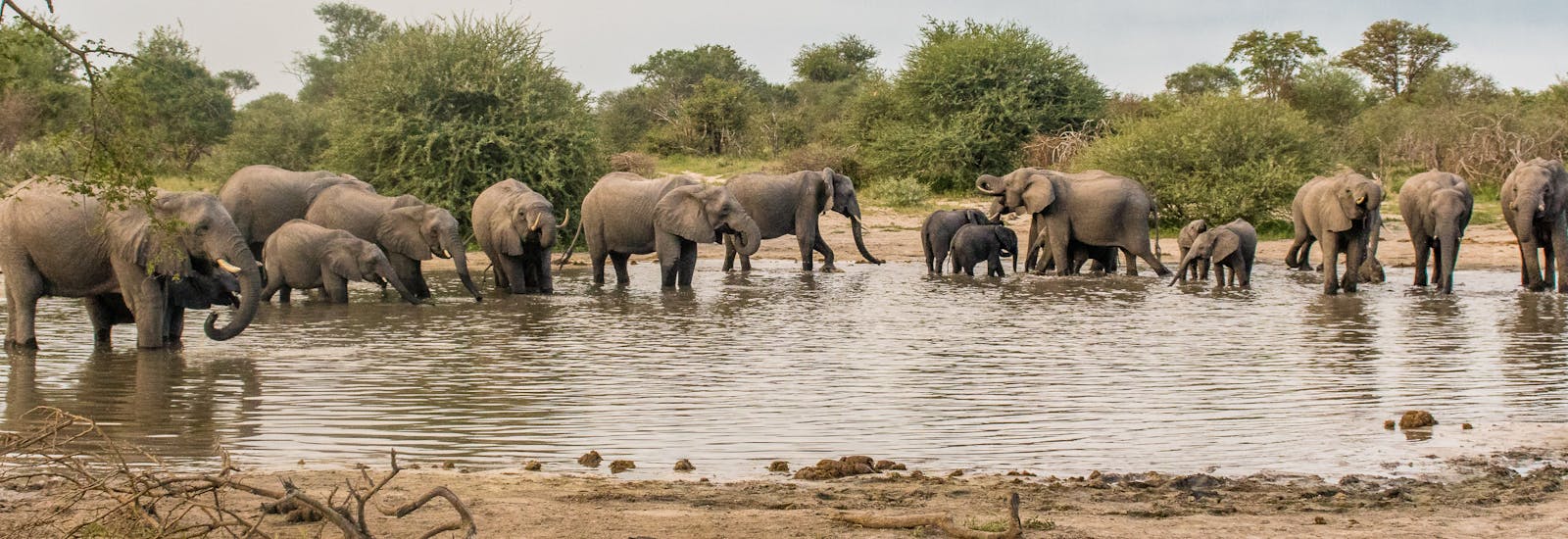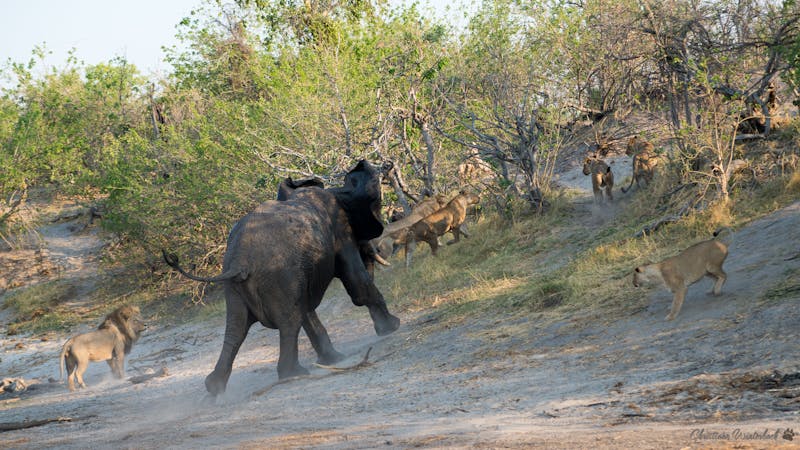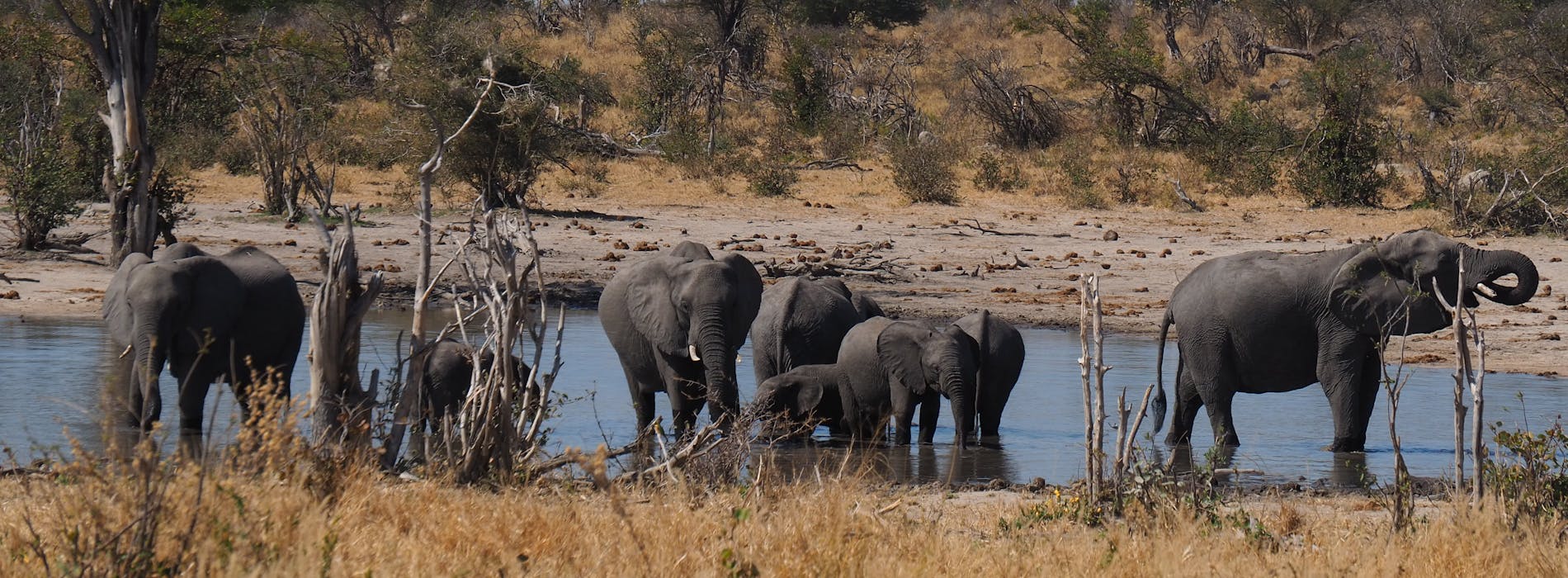
Amazing African elephant facts to keep under your trunk (Infographic)
African elephants are the largest animals walking the Earth. Their graceful and gentle nature makes them an animal that many hold close to their hearts. African elephants are particularly easy to spot due to their prominent characteristics and features, such as their large ears, long curved tusks and their powerful trunks.
The sheer size and presence of African elephants mean that they can more than hold their own when confronted, but unfortunately, it doesn’t stop them from having a conservation status of ‘vulnerable’. Illegal ivory trade still poses a huge threat to the lives and welfare of African elephants, along with loss of habitat, poaching and urban sprawl.
In this infographic, we share some interesting facts about elephants and explain what you can do to make a difference in their conservation status.

Read the stats from the African elephant infographic below!
The largest of all land mammals, African elephants are instantly recognisable animals, with their large ears and unique trunks.
With the largest brain of any land animal elephants are intelligent animals, quite capable of complex behaviours and emotions. Living in family groups, they are extremely capable of manipulating objects, and social interaction that are essential for maintaining a balance within their local ecosystems. Despite familial attachments, male elephants often move in bachelor groups or alone.
African elephant fact file
Status: Vulnerable
Population: Hard to specify, but in decline
Scientific name: Loxodonta africana
Size (Adult): Up to 13ft tall (at the shoulder)
Weight (Adult): Up to 7 tonnes
Habitat: From forest to grasslands and even in desert environments
Sound: African elephants can communicate through a huge variety of sounds from infrasonic stomach rumblings inaudible to the human ear through to an ear-splitting trumpet.
Where can African elephants be found?
- Benin
- Botswana
- Burkina Faso
- Cameroon
- Central African Republic
- Chad
- Congo
- DR Congo (Democratic Republic of the Congo)
- Ethiopia
- Gabon
- Ghana
- Kenya
- Malawi
- Mozambique
- Namibia
- South Africa
- South Sudan
- Swaziland (Eswatini)
- Tanzania
- Uganda
- Zambia
- Zimbabwe
(population of over 1,000 elephants)
Did you know?
- African elephants can produce very low-frequency noises that can travel many kilometres.
- Elephants have the longest gestation period of any land animal, averaging between 21-22 months of pregnancy.
- Wild elephants have long life spans and will typically live 60-70 years. In captivity that reduces dramatically, with few Living beyond 40 years.
- Elephants can consume up to 58 gallons of water every day. That's the same amount as a typical family bath.
- Elephants use their ears to keep cool - either by holding them out in the wind, or by flapping them, cooling a large network of blood vessels in the ears.
- Elephants can swim for long distances.
- As a 'keystone' species, elephants play an incredibly important role in their ecosystem, including uncovering water sources and affecting plant life.
- Tens of thousands of elephants are killed every year for their ivory, meat and skins. Despite a ban on the trade, ivory Is still carved Into jewellery and ornaments.
- An elephant's trunk is composed of around 40,000 muscles, making it incredibly strong and flexible.
Volunteer with African elephants at African Conservation Experience
Learn more about elephant conservation in their natural habitat with an unforgettable on-the-ground experience at African Conservation Experience.
ACE’s Okavango Wilderness Experience offers a once-in-a-lifetime opportunity to get hands-on with elephant conservation.
Okavango Wilderness Experience
Want to work with elephants in Africa? See the iconic species up close and personal and take part in work that is designed to improve their welfare and safety on our Okavango Wilderness Experience.
You’ll be tasked with monitoring the region which is home to literally thousands of elephants. Learn about their herds, social structures and their behaviours, whilst conducting surveys and research using some advanced equipment and technology.
If you’d like to learn more about elephant conservation work in Africa, you can start your adventure today with the Okavango Wilderness Project.


